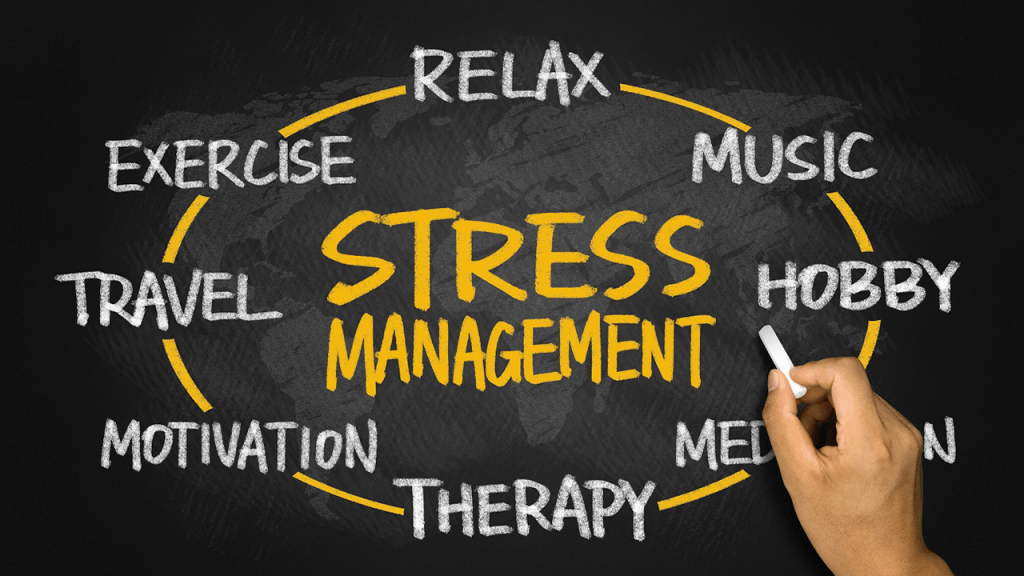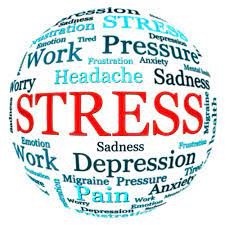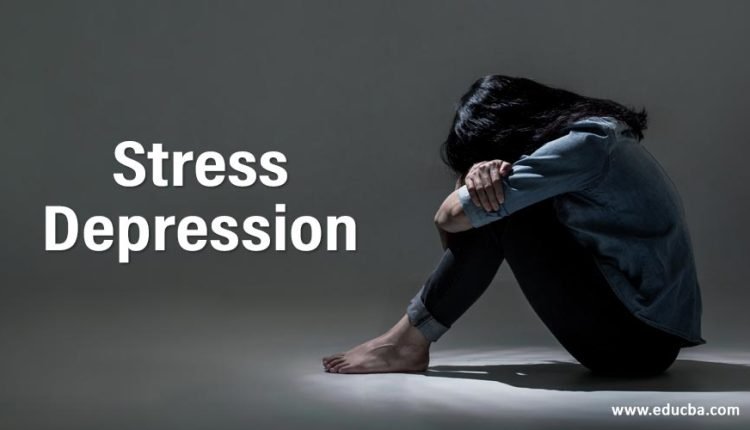Depression and Stress Management
Stress is the body’s response to physical or emotional demands. Emotional stress can play a role in causing depression or be a symptom of it. A stressful situation can trigger feelings of depression, and these feelings can make it more difficult to deal with stress.
High-stress events, such as losing a job or the end of a long-term relationship, can lead to depression. Not everyone who experiences these situations becomes depressed. Biological factors may explain why one person facing a stressful circumstance experiences depression while another person doesn’t.

Causes of stress
Losing a family member, divorce, and moving are all major life changes that can cause stress. Some studiesTrusted Source link an overactive stress system and high levels of cortisol in the body to depression and other health conditions, including heart disease. When the mind feels threatened, the body produces more stress hormones — such as cortisol — to help the body fight or run away from the threat. This works well if you’re in real danger, but it doesn’t always benefit you in your daily life.
Other examples of events that can cause stress include:
- getting into a fight with your spouse or significant other
- losing your job
- major natural disasters, such as earthquakes or tornadoes, that can damage your home or destroy it altogether
- getting into a car accident, which can cause physical, emotional, and financial stress
- being robbed, mugged, or attacked
Certain lifestyle choices can also contribute to your stress levels. This is especially true if they affect your overall health or if you become dependent on unhealthy coping mechanisms. Lifestyle choices that can increase your stress include:
- heavy or excessive consumption of alcohol
- not getting enough exercise
- smoking or using illegal drugs
- working for long periods of time without taking a break, or being a “workaholic”
- not eating a well-balanced diet
- spending too much time watching television or playing video games
- looking at a smartphone in bed, which can keep you from falling asleep
Sometimes the constant stresses of daily life trigger your fight-or-flight response. This can lead to complications, including depression. In other cases, the development of depression is unrelated to stress.
Depression can make experiencing and coping with events in your life more challenging. Big and small stresses still occur, but with depression, you may not feel as equipped to deal with them. This can make the symptoms of depression and the stress of certain situations even worse.
Types of stress
Stress can be caused by a single event or by temporary situations. This is known as acute stress. Acute stress can be brought on by events that stress you out, such as taking a big test, or by an acute injury, such as a broken bone.
Stress can also last a long time without ever feeling like it’s easing up. In these instances, events or illnesses may cause continuous stress or there may be no clear reason for your stress. This is known as chronic stress. Chronic stress is usually the result of personal, lifestyle, or health issues that are also chronic. Common causes of chronic stress include:
- having financial struggles
- working at a high-pressure job
- having personal or relationship issues at home
- not feeling like you have enough support from family or friends
Effects of stress on depression
While stress can generally have negative effects on your physical and mental health, it can be especially harmful if you have depression.
Stress can make you feel less able to maintain positive habits or coping strategies, which are important to managing depression. This can make symptoms of depression feel more intense. Interrupting a healthy routine can result in negative coping strategies, such as drinking or withdrawing from social relationships. These actions can result in further stress, which can then make depression symptoms worse.
Stress can also affect your mood, as anxiety and irritability are both common responses to stress. When a stressor causes you to feel anxious, the anxiety may result in more negative feelings or frustration, even if the stressor is only temporary.

Read Also: Jonathan solicits prayers for mother as he buries sister
Tips on managing stress
Stress management techniques are useful in coping with depression. Stress relief can also help prevent depressive symptoms from developing. Some helpful stress management techniques include:
- getting enough sleep
- eating a healthy diet
- getting regular exercise
- taking occasional vacations or regular breaks from work
- finding a relaxing hobby, such as gardening or woodworking
- consuming less caffeine or alcohol
- doing breathing exercises to lower your heart rate
If lifestyle choices are causing you stress, you may consider changing the way you approach your personal or professional life. Some ways you can help decrease this kind of stress include:
- putting yourself under less pressure to perform at work or school, such as by lowering your standards to a level you still find acceptable
- not taking on as many responsibilities at work or activities at home
- sharing responsibilities or delegating tasks to others around you
- surrounding yourself with supportive and positive friends and family members
- removing yourself from stressful environments or situations
Activities such as yoga, meditation, or attending religious services can also help you deal with stress. A combination of these techniques may prove even more effective. It’s important to find what works for you. And no matter what you choose, it’s vital to have close friends and family members who are willing to support you.
Talking to a counselor, therapist, or other mental health professional can also be a useful way to deal with stress and depression. Talk therapy alone or combined with cognitive behavioral therapy (CBT) or medication is a proven solution for both depression and chronic stress. Medications for depression include:
- selective serotonin reuptake inhibitors (SSRIs), such as citalopram (Celexa)
- monoamine oxidase inhibitors (MAOIs), such as isocarboxazid (Marplan)
What the expert says
“A depressed person is compromised in dealing with problematic situations,” says Stacey Stickley, a licensed professional counselor practicing in Ashburn, Virginia. “When a person is dealing with depression, things may seem more negative than they really are. Events that would have been taken in stride may seem more problematic or impossible to handle. The idea of taking action on things may require more of a person’s resources, resources that are already compromised due to the depression.”
“Talk to your doctor about pharmacological options, or go talk to a counselor about evaluating and managing your symptoms,” she says. “Don’t wait. Being proactive is important so you can maybe stop the downward slide sooner. It’s easier to climb out of a shallow hole than one you have been slowly digging and tunneling into for several months.”
Takeaway
Stress can result from many personal, professional, and environmental causes. The best way to cope with stress is by managing the stressors that are within your control. For example, you could walk away from toxic relationships or leave a stressful job. You can also practice accepting or coping with the stressors that are out of your control, with actions like meditating or drinking less caffeine and alcohol.
Depression can make it much more difficult to control or cope with stressors, but seeking out counseling or therapy or taking medication can allow you to better confront stressors and deal with them in a positive, constructive way.


[…] Learn Additionally: Depression and Stress Management […]